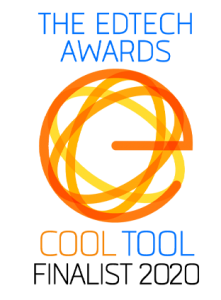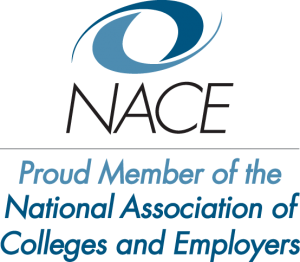If you find yourself in the throes of discerning your calling in your career, you’ll find it much harder if you don’t invite others to help.
In a classic meta-analysis (i.e., study of studies) of what works in career counseling interventions, Steve Brown and Nancy Ryan Krane[i] identified five “critical ingredients” that tend to show up in the interventions that have the best outcomes:
- Written goal-setting exercises;
- Individualized interpretation and feedback;
- Accurate and up-to-date occupational information;
- Attention to building support; and
- Modeling
I explored the first of these, written exercises, in a recent blog post. The next two, individualized interpretation and feedback and occupational information, are the bread and butter of jobZology’s PathwayUTM product. The last two “critical ingredients” in effective career interventions overlap, at least somewhat.
Modeling for Career Development
Modeling in career development interventions involves learning decision-making strategies from people who have been there and done that. Attention to support-building recognizes that career decisions are best made with the help of friends, family, and mentors who can provide advice and encouragement.
Vocational psychology theory and research suggests that few influences can boost a person’s decision-making confidence more than learning from role models.[ii] Think about it—whenever you want to build confidence in a particular skill, it always helps to observe people who have mastered that skill.
The studies in Brown and Ryan Krane’s meta-analysis that included modeling exposed participants to people who had already achieved success in exploring careers, making a decision, and then obtaining a position within their chosen field. Especially when we personally identify with the people we are learning from, hearing others share about their experience successfully navigating the decision-making progress can have a big impact.
An Experiment
Knowing this effect for modeling, I once conducted an experiment to see if modeling in the form of counselor self-disclosure (i.e., sharing their own experiences) could help participants discern a calling.[iii]
In this study, my colleague, Michael Steger, and I designed a brief workshop intended to assist students with making decisions about their career paths. We divided workshop participants into two groups. With the first group, we asked the counselor who led the workshop to share her own personal story about how she discerned her calling. With the second group, we asked her to use hypothetical examples (e.g., “Imagine there is a student who…”).
When we compared the two groups, we found that the students who had listened to the counselor share her personal story reported greater confidence in their ability to successfully manage the decision-making process, and also a stronger sense of meaning in life, than the group who heard the hypothetical examples.
The activities that participants completed during the workshop sessions were the same, but learning from someone who had personally navigated the process herself boosted their confidence and left them with a sense of purpose as they looked ahead.[iv]
What does this mean for you?
It means you should seek out role models and cling to them (figuratively, please) when you find them, because what you can learn from a role model is powerful. Use your network to identify someone who is living a calling in a career that you’re interested in learning more about. Seek out people like this with boldness, and ask them to share with you how they got there. If they can do it, you can do it too.
Support from important others is powerful too. Support boosts people’s confidence in their career decision-making, but also helps people move from making plans to actually taking steps to make those plans happen. Some of the most effective interventions that Brown and Ryan Krane identified in their meta-analysis focused on enlisting help and support from families and friends. Others brought in support from people who understood the cultural contexts in which clients lived—people who could teach them how to interact in positive ways with their environments.
This fits with other research that has shown very clearly that support from friends and family has a huge impact on the careers to which young people aspire, that unsupportive peers can limit their aspirations, and that support from one’s family, school, and workplace can make an enormous difference in how youth transition into the world of work. Career decisions are never permanent, but neither are they trivial; they are big decisions. And big decisions are more wisely made within the context of support, rather in a vacuum.
Identifying Support Systems
Within your own life, who can you count on for encouragement, support, wisdom, and a healthy dose of perspective? You might consider these people your circle of support. Often, it helps to establish a mechanism for leaning on their support specifically as you go through the career discernment process.
jobZology’s Discern Your Calling, Live Your Purpose workbook includes an exercise that invites you to name people who make up two separate (but possibly overlapping) circles, one consisting of people who serve as wise advisors, and the other consisting of people who serve as support-giving encouragers. You might call the first group your Personal Board of Advisors, and the second group your Personal Board of Encouragers.
Who would can you invite to serve in each of these groups? Seriously, write these names down. When identifying your circles of support, consider the following tips:
- List at least three people. Every person has a unique perspective, and diverse perspectives from people who know you in different contexts are valuable. That is because collectively, they offer a more well-rounded perspective than what is possible from just one or two people. When you see areas of convergence, or themes, that cut across what you hear from these folks, pay special attention.
- Do not include someone with an agenda. We all know people who have a strong (sometimes self-serving) opinion about what we “should” do with our lives, and who seem more eager to express that opinion than listen carefully to our concerns. Take the advice of such people likely, and balance it with other perspectives you trust.
- Lean especially on people who: you trust; know you well; care about you; you have a long history with; are described by others as wise; have substantial life experience; share your values, especially your faith; are kindhearted; are good listeners; and are encouraging.
After you’ve named these people, contact each of them and share that you are currently engaged in a discernment process and could use their help. This may feel unnatural or awkward to you, but take courage and speak from the heart. Most likely, they will feel honored by your request and very happy to help. For members of your Board of Advisors, ask if they are willing to connect with you for a short one-on-one meeting.
During that meeting, tell your story and ask for feedback and advice, using questions like “How ‘on track’ does it seem like I am right now?” “What should I be asking myself that I don’t seem to be at the moment?” “What do you see as my strengths, and what seem like promising pathways for me?”
Take a notebook and jot down your thoughts as you have these conversations. For members of your Board of Encouragers, ask if they’d be willing to provide you with a listening ear, and support when needed. Tell your story to them, too—be open in expressing your concerns, and lean on their encouragement for strength and persistence.
Discerning a calling is seldom easy, but it is much easier when others are walking alongside you.
References
[i] Brown, S. D., & Ryan Krane, N. E. (2000). Four (or five) sessions and a cloud of dust: Old assumptions and new observations about career counseling. In S. D. Brown & R. W. Lent (Eds.), Handbook of counseling psychology (3rd ed., pp. 195–226). New York: Wiley.
[ii] Social Cognitive Career Theory most directly addresses the role of modeling as a core influence on self-efficacy. Lent, R. W. (2005). A social cognitive view of career development and counseling. In S. D. Brown & R. W. Lent (Eds.), Career development and counseling: Putting theory and research to work (pp. 101–127). New York: Wiley.
[iii] Dik, B. J., & Steger, M. F. (2008). Randomized trial of a calling-infused career workshop incorporating counselor self-disclosure. Journal of Vocational Behavior, 73, 203-211.







